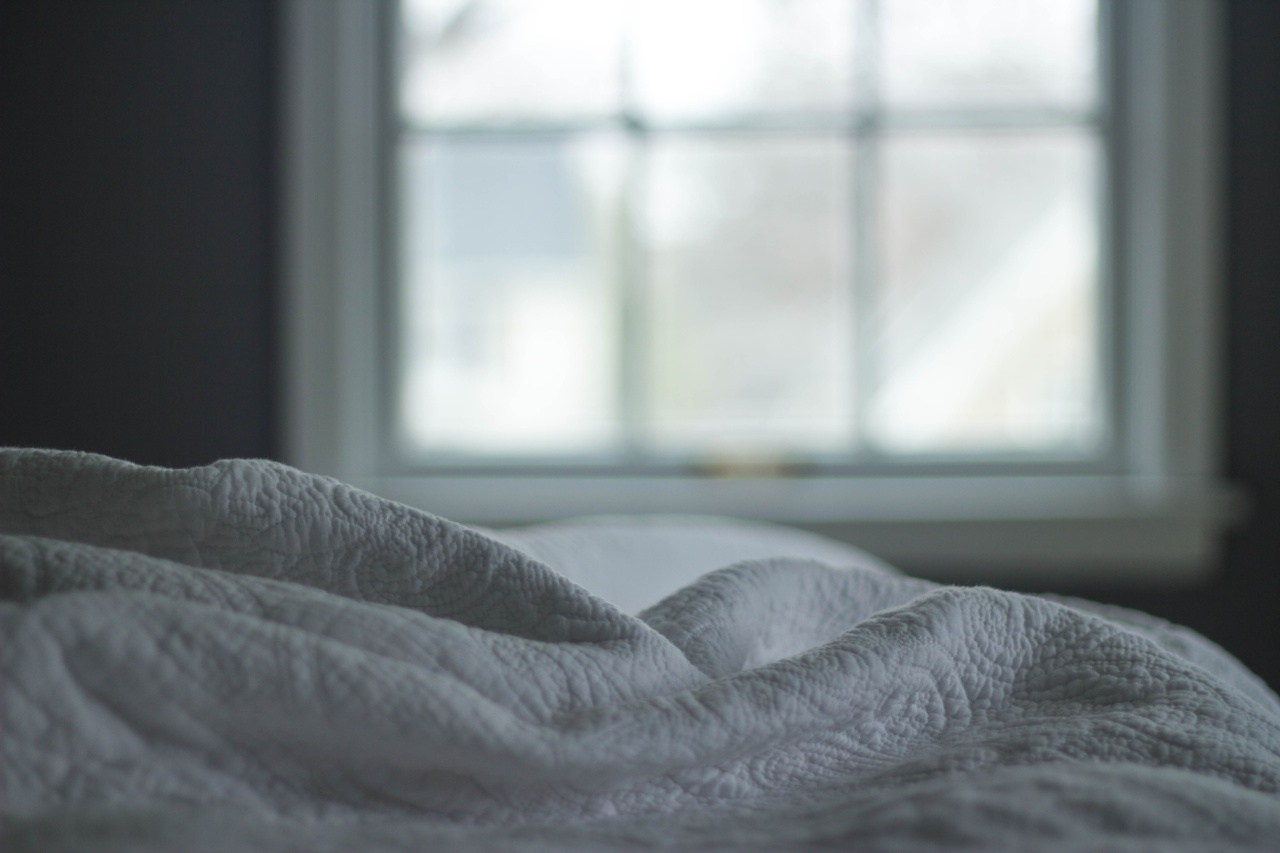The Kronovirus pandemic has affected various aspects of our lives, including our sleep patterns. With the world grappling with uncertainty and stress, it is no surprise that sleep has been greatly impacted.
In this article, we will explore the different ways in which the Kronovirus has disrupted sleep and discuss strategies to improve sleep during these challenging times.
1. Increased Stress and Anxiety
The Kronovirus pandemic has brought about an unprecedented level of stress and anxiety for many individuals. This heightened state of worry can lead to difficulty falling asleep and staying asleep throughout the night.
Stress and anxiety activate the fight or flight response, which can make it challenging to calm the mind and relax before bedtime.
2. Disruption of Daily Routine
Many individuals are experiencing significant disruptions to their daily routines due to factors such as remote work, school closures, and social distancing measures.
These disruptions can throw off our internal body clocks, also known as circadian rhythms, which regulate our sleep-wake cycle. Irregular sleep schedules and lack of consistency can make it difficult to maintain healthy sleep patterns.
3. Increased Screen Time
During the Kronovirus pandemic, screen time has seen a significant increase. Whether it’s working from home, attending virtual meetings, or using technology as a source of entertainment, many individuals are spending more time in front of screens.
The blue light emitted by electronic devices can interfere with the production of melatonin, the hormone that regulates sleep. This disruption can make it harder to fall asleep at night.
4. Lack of Physical Activity
With gyms closed and restrictions on outdoor activities in place, many individuals are experiencing a decrease in physical activity levels. Regular exercise has been shown to improve sleep quality by promoting relaxation and reducing anxiety.
The reduction in physical activity during the Kronovirus pandemic may contribute to sleep disturbances.
5. Changes in Sleep Environment
Working from home and spending more time indoors has led to changes in our sleep environment. Some individuals may find it challenging to create a separate workspace, leading to increased stress and anxiety.
The bedroom, which should ideally be associated with rest and relaxation, may become a source of stress if it is also used as a workspace. Additionally, disruptions in household routines due to family members being home throughout the day can also impact sleep quality.
6. Emotional Toll of the Pandemic
The Kronovirus pandemic has taken an emotional toll on individuals worldwide. The fear of contracting the virus, grief and loss, financial concerns, and social isolation can all contribute to heightened emotional distress.
These emotional factors can greatly impact sleep quality and duration.
7. Insomnia and Sleep Disorders
For some individuals, the Kronovirus pandemic has exacerbated existing sleep disorders or led to the development of new sleep problems.
Insomnia, characterized by difficulty falling asleep or staying asleep, is a common sleep disorder affected by stress and anxiety. Sleep disorders can further perpetuate a cycle of poor sleep and heightened stress levels.
8. Importance of Sleep Hygiene
Despite the challenges presented by the Kronovirus pandemic, it is crucial to prioritize sleep hygiene. Sleep hygiene refers to the practices and habits that promote healthy sleep.
Establishing a consistent sleep schedule, creating a relaxing sleep environment, limiting screen time before bed, and incorporating relaxation techniques can all contribute to better sleep quality.
9. Seeking Professional Help
If sleep disturbances persist and significantly impact daily functioning and well-being, it may be necessary to seek professional help.
Sleep specialists and mental health professionals can provide guidance tailored to individual circumstances, addressing underlying sleep disorders, anxiety, or other factors affecting sleep.
10. Taking Care of Mental Health
During these challenging times, it is essential to prioritize mental health. Engaging in stress-reducing activities such as meditation, deep breathing exercises, and practicing mindfulness can help improve sleep.
It is equally crucial to stay connected with loved ones, seek support when needed, and engage in activities that bring joy and relaxation.
Conclusion
The Kronovirus pandemic has had a profound impact on sleep patterns worldwide.
Increased stress and anxiety, disruption of daily routines, excessive screen time, lack of physical activity, changes in the sleep environment, emotional distress, and the development or exacerbation of sleep disorders are amongst the factors affecting sleep during these challenging times.
However, by implementing strategies to improve sleep hygiene, seeking professional help when necessary, and prioritizing mental health, individuals can take steps towards getting better sleep and mitigating the effects of the Kronovirus on sleep patterns.































